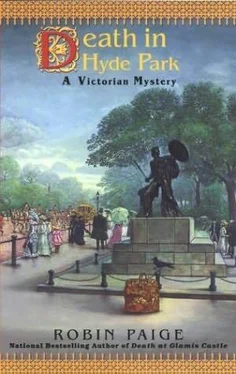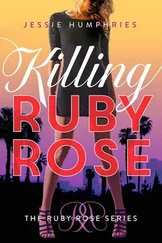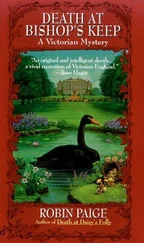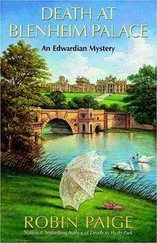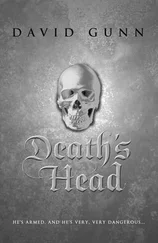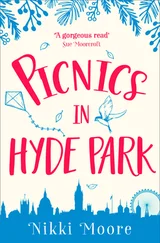Robin Paige - Death in Hyde Park
Здесь есть возможность читать онлайн «Robin Paige - Death in Hyde Park» весь текст электронной книги совершенно бесплатно (целиком полную версию без сокращений). В некоторых случаях можно слушать аудио, скачать через торрент в формате fb2 и присутствует краткое содержание. Жанр: Классический детектив, на английском языке. Описание произведения, (предисловие) а так же отзывы посетителей доступны на портале библиотеки ЛибКат.
- Название:Death in Hyde Park
- Автор:
- Жанр:
- Год:неизвестен
- ISBN:нет данных
- Рейтинг книги:5 / 5. Голосов: 1
-
Избранное:Добавить в избранное
- Отзывы:
-
Ваша оценка:
- 100
- 1
- 2
- 3
- 4
- 5
Death in Hyde Park: краткое содержание, описание и аннотация
Предлагаем к чтению аннотацию, описание, краткое содержание или предисловие (зависит от того, что написал сам автор книги «Death in Hyde Park»). Если вы не нашли необходимую информацию о книге — напишите в комментариях, мы постараемся отыскать её.
Death in Hyde Park — читать онлайн бесплатно полную книгу (весь текст) целиком
Ниже представлен текст книги, разбитый по страницам. Система сохранения места последней прочитанной страницы, позволяет с удобством читать онлайн бесплатно книгу «Death in Hyde Park», без необходимости каждый раз заново искать на чём Вы остановились. Поставьте закладку, и сможете в любой момент перейти на страницу, на которой закончили чтение.
Интервал:
Закладка:
“And yourself, I suppose,” Charles said.
“Not I,” Ashcraft replied.
Charles looked at him. “You’ve not handled the bottles, then?”
Ashcraft shook his head. “Nothing to do with them. Finney brought them in, along with the Anarchist literature. The glycerine was found in the newspaper office, and one of the Anarchists-Mouffetard, it was-was carrying the bomb-making instructions in his pocket.” He looked at the stoneware bottles, which bore smudges of the black dust used to make the fingerprints visible, then scowled at Collins. “Those damned fingerprints of yours, Sergeant, are causing us no end of trouble, and to no purpose, none at all. When will you understand that they are not reliable evidence? They may be useful as a means of identifying certain criminals- may, I say-but they have never been used to achieve a conviction in a court of law. No jury will ever be persuaded by such scientific hocus-pocus.”
“You are correct on the one point, Inspector,” Savidge said, closing his notebook with a snap. “Fingerprints have not yet been used to obtain a conviction. In a fortnight, however, the case may have altered.” He nodded at Collins. “Isn’t that so, Sergeant?”
Ashcraft fixed the sergeant with a black look. “What’s happening in a fortnight, Collins?”
“Why, the Jackson burglary case, of course, sir,” Collins replied, as if he were amazed that Ashcraft did not know of it. “Haven’t you heard talk of it? Jackson’s to be tried at Old Bailey a fortnight hence. I’m to testify, since I made the fingerprint match. And there’s a very good man-Richard Muir-standing for the Crown. Assistant Commissioner Henry chose him himself.”
“Yes, Muir,” Savidge said, in a tone of great satisfaction. “I don’t know who’s up for the defense, but in this case, my money is on the Crown. Muir is a workhorse, I’ll tell you. Keeps all the facts and notes for a case on colored cards, one color for direct, another for cross, and so on. ‘There’s Muir at his card game,’ people say. He-”
“The devil himself couldn’t persuade a jury to convict a man on fingerprint evidence alone,” Ashcraft said derisively. “Now, if you will excuse me, I have work to do. I haven’t got the whole bloody day to stand around.”
Charles watched the man depart, reflecting that there seemed to be some truth to what Miss Conway, Steven Wells, and the Russian had said. He turned to Collins.
“Could I have a look at that partial print, Sergeant?”
CHAPTER TWENTY-THREE
Jack felt increasingly frustrated with [his marriage to Bess]. During her pregnancy he had told Anna: “just when freedom seems opening up for me I feel the bands tightening and the riveting of the gyves. I remember when I was free and there was no restraint and I did as the heart willed.” Jack told male friends Bess was a gossip, mean-spirited, as cold as the Klondike.
Alex Kershaw, Jack London: A LifeLottie picked up the newspaper- Freedom, the only remaining Anarchist newspaper in London-and scrunched the pillow behind her back so she could sit more comfortably on the narrow bed, one of two in the chilly room. It was Thursday morning, and Jack was sitting at the table beside the window, typing away at his book, his back turned toward her, a cup of coffee at his elbow. That was how he spent most mornings, hunched obsessively over his typewriter, smoking and drinking coffee. He had to produce a thousand words a day, he said, or he would fall behind in the schedule he had set himself.
Lottie had been here only since Tuesday, but it had been long enough to know that Jack had been right about this place; in many respects, it was a perfect hideaway. No one would ever think to look for her in an upstairs room let to the American adventure writer Jack London, in the house of a policeman! What was more, Officer Palmer went out on his beat every morning and Mrs. Palmer and her two daughters were employed as seamstresses in a dress shop in New Bond Street, so the house was empty all day. And the Palmers lived on the first floor and Jack’s room was on the second, at the rear; as long as they kept their voices down, there was little danger of discovery even when the family was at home. Jack’s room even had its own private stair, so when Lottie needed to use the backyard privy, all she had to do was check to see that the coast was clear and make a dash for it. Even if she were seen, it would only be assumed that Jack was entertaining a female visitor, as he certainly had every right to do.
Of course, there were drawbacks, too, and one was so serious that it had almost prompted her to leave that very first day. Lottie had always held the unconventional belief that a woman’s first responsibility was to herself, and that she had the moral obligation to be her very own person. To her, marriage seemed to compromise a woman’s independence, without which she was nothing. She believed that love should be free, without constraint, and if one could not love freely, one should not love.
Lottie might be quite a few years ahead of her era in this belief, but she was certainly not alone, for several important women of her day also advocated free love. In England, more than a century before, Mary Wollstonecraft had attacked marriage as “legal prostitution.” In the United States, the writer and self-trained physician Mary Gove Nichols spoke and wrote about the need for women’s sexual emancipation, while Victoria Woodhull, a leader of both the free love and woman suffrage movements, led a determined campaign against marriage. As Lottie considered her position vis-a-vis relationships with men outside of the bounds of marriage, she was in the company of a substantial number of forward-looking feminist thinkers of her day.
So if Lottie had considered Jack London as a potential lover, she was making a choice that she herself would consider perfectly moral. He was quite the handsomest, manliest, most virile man she had ever seen, and she was enormously attracted to him, so much so that almost all thought of Adam Gould had flown from her mind. What’s more, from the moment they met, Jack had made it abundantly, emphatically clear that he was attracted to her, as well. Considering that the two of them had been thrown together by fate (or so it seemed), Lottie saw no reason why she should not give herself to him eagerly, joyfully, without reservation. In fact, when he invited her to hide out in his room, she had assumed that they would become lovers. It all seemed very natural and, given her feelings against the restrictions of marriage and the prerogatives that women should claim outside of it, very right.
But that was before Lottie had found the photograph of Jack’s wife and little girl, hidden under a pile of manuscript pages next to his typewriter, on the little table beside the window. Jack had gone out to get them some supper, and Lottie, curious to see what sort of writer he was and what he had written about the East End, had picked up the manuscript to take it to her bed and read it. The photograph-the picture of a smiling, voluptuous, raven-haired woman with a baby girl in her arms-fluttered to the floor, and when she picked it up, she read the inscription on the back: To dearest Jack, from his devoted wife Bess and darling Joan.
Lottie had stared at the photograph until the images blurred, then put the manuscript, unread, back on the table, the photograph safely concealed beneath it. Having seen it, though, she knew that she was in a corner. She was free to love, but Jack was not, and to give herself to him would be morally wrong. It would be to betray a woman she had never met-a woman who had given birth to Jack’s child and to whom he had pledged his life-and Lottie could not in conscience bring herself to do this. In conscience, too, she had to condemn Jack for attempting to entice her into an adulterous relationship, and this new knowledge entirely changed her feelings toward him.
Читать дальшеИнтервал:
Закладка:
Похожие книги на «Death in Hyde Park»
Представляем Вашему вниманию похожие книги на «Death in Hyde Park» списком для выбора. Мы отобрали схожую по названию и смыслу литературу в надежде предоставить читателям больше вариантов отыскать новые, интересные, ещё непрочитанные произведения.
Обсуждение, отзывы о книге «Death in Hyde Park» и просто собственные мнения читателей. Оставьте ваши комментарии, напишите, что Вы думаете о произведении, его смысле или главных героях. Укажите что конкретно понравилось, а что нет, и почему Вы так считаете.
